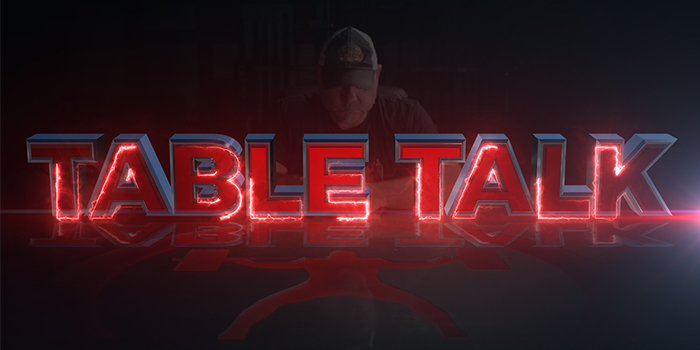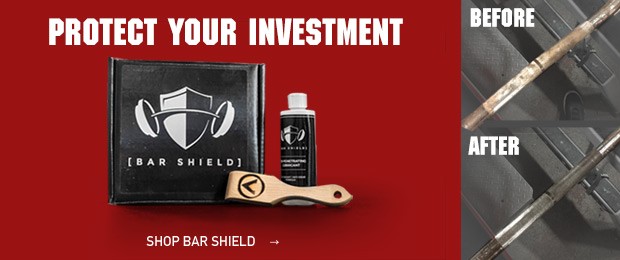
Sometimes, in the sport of powerlifting, it can seem like coaches are providing conflicting direction to their athletes. One coach may tell you to do it “like this”, while another coach tells you to do it “like that”. More often than not, it’s simply a difference in the delivery of the same message. The reality is that most powerlifting coaches that have been in the industry for a while know their stuff – one such example is Mark Rippetoe. In this table talk, Dave Tate sits down to answer the following question on Rippetoe:
Has Dave ever met Mark Rippetoe? Would be cool to see them get together for a podcast after a few drinks.
Tate starts out by saying that he’s never had the opportunity to meet Rippetoe in person, but that they’ve had a couple conversations over the phone in the past. They ended up connecting in the first place because Rippetoe wrote an article on the deadlift after having done research into proper shoulder positioning for the movement. Around the same time, he noticed that Tate had posted a piece in which he stated that the shoulders have to be behind the bar in the deadlift. Rippetoe disagreed, and sent his article over to Tate in an effort to illustrate his point of view.
Tate says that after reading it and discussing it with Rippetoe, he completely knew where he was coming from. What’s more, Tate realized that it wasn’t really a disagreement after all, because in actuality they were simply delivering similar messages in different ways:
It was really enlightening because when it was really all said and done, we were saying the exact same thing. I realized that…what I was writing was based upon verbal cueing that I would give somebody in the gym.
In reality, Tate was not trying to ensure that athletes’ entire shoulders were behind the bar when they pulled. He was, however, trying to train his athletes to have their shoulder joints in line with or slightly in front of the bar. The misunderstanding was rooted in verbal cues. Tate recognizes that what he says in the gym as a verbal cue during a training session can easily become misconstrued when taken out of context in a piece of writing.
MORE: Learn to Train X — What It Really Means to Live, Learn, and Pass On
When it comes to his conversation with Rippetoe, Tate admits that in the end there really was no disagreement. Coaches today may differ in their approaches, but it’s likely with regard to just 5-10% of their training principles. These slight differences stem from their own personal biases and are based upon what they’ve personally seen work well with athletes over the course of their careers. Nonetheless, sitting down to discuss each person’s opinion is highly productive in trying to understand their perspective. You may not agree with it in the end, but you can appreciate where they are coming from and why they think the way they do. Tate gives credit to the coaches that have been around the industry for years, saying that the time they’ve dedicated to the sport certainly counts for something.
Anybody that’s been around for a long time…knows what they’re doing. If you disagree or not, they’ve lasted the test of time, and you know what? That matters! Nobody lasts the test of time in this industry if they suck. It doesn’t happen.
Furthermore, Tate says that he is able to gauge how credible a coach is by looking at how they got their start in the industry in the first place. He says that if a person started out in powerlifting in order to sell a product or service, he’s immediately skeptical of them. Do they really care about people, and about helping them get better? On the other hand, if he sees a coach who has been out there working in the field, answering questions, writing articles, and helping people without initially getting paid for it, then they are probably the real deal.
Forget what they know about training. If they’ve been out there helping people for free – passing on what they know, for free, for years – and then they put out a product, they care about people!
It’s the notion of “passing on” that Tate comes back to as his litmus test of legitimacy. He ends by acknowledging that Rippetoe is certainly someone who has been out in the powerlifting industry passing on what he knows to others for years. Do they disagree about some things? Yes. And yet, do either of them really care? No – so you shouldn’t either.










